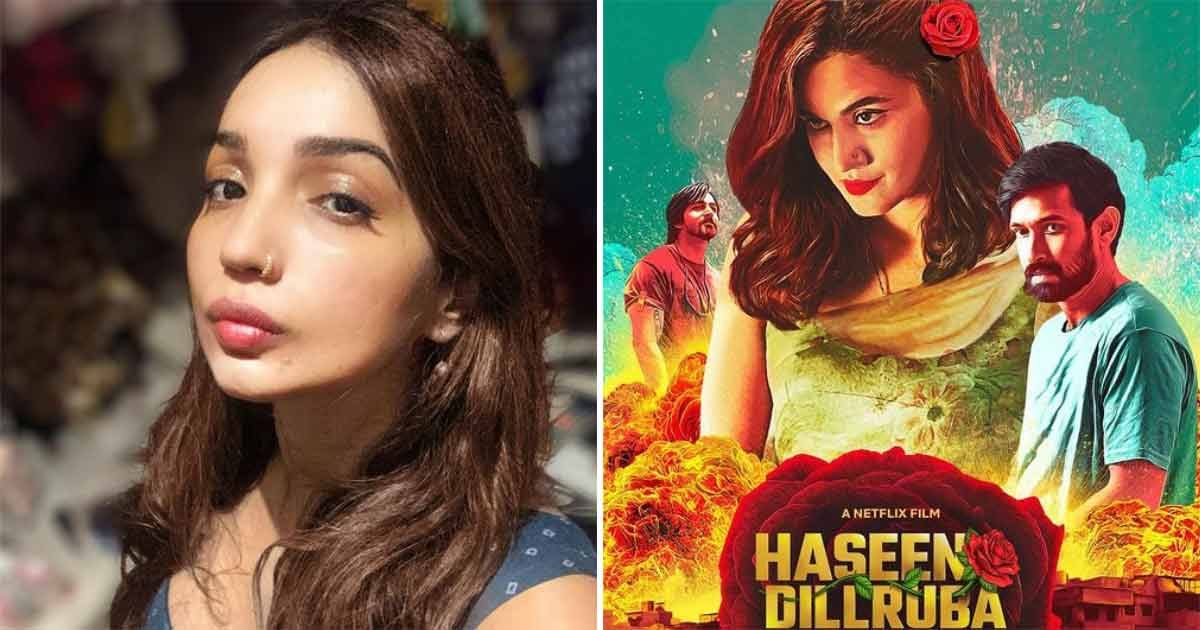Kanika Dhillon on Haseen Dillruba: "I wanted to recreate this Hindi pulp fiction world in cinema"
Kanika Dhillon on Haseen Dillruba

Her fascination with Hindi pulp fiction novels while growing up was a major inspiration behind creating the small-town universe of "Haseen Dillruba", says writer Kanika Dhillon. Directed by Vinil Mathew, "Haseen Dillruba" features Taapsee Pannu in the role of Rani Kashyap, a feisty woman who is a fan of a fictional Hindi crime novelist, Dinesh Pandit.
Under investigation as a suspect for the murder of her husband, Rani reveals details about their thorny marriage but that seems to further blur the truth about what happened. Rani's interest in Hindi pulp fiction stems from Dhillon's love for the genre, who as a child was always intrigued by these crime novels. Renowned author Surendra Mohan Pathak's novel "Paisath Lakh ki Dakaiti" was her introduction to the world and she wanted to recreate the same experience cinematically, she said.
"I would always be intrigued by these novels and their covers, which would have these titillating pictures of women, blood, and a knife on the cover...I wanted to do something which was very pulp and rooted in a small town. I wanted to recreate this Hindi pulp fiction world in cinema," the 38-year-old writer told PTI in an interview.
Dhillon, known for penning films like "Kedarnath", "Judgementall Hai Kya" and "Manmarziyaan", said the fictional author Dinesh Pandit in the movie is her hat-tip to all the Hindi pulp fiction writers.
"Dinesh Pandit is almost an ode to all these Hindi pulp fiction writers who we don't know but are really brilliant in what they write. Dinesh Pandit was, in fact, inspired from Surendra Mohan Pathak who has such a huge body of work. That's how 'Haseen Dillruba's world started coming together," she added.
Set in the small town of Jwalapur, near Haridwar, Uttarakhand, "Haseen Dillruba" also features actors Vikrant Massey and Harshvardhan Rane. While Massey essays the role of Rani's simpleton husband Rishu, Rane plays her brother-in-law Neel Tripathi. The film is an addition to Dhillon's list of female characters, who make a choice and own up to it, as well as introverted heroes, capable of rising above their circumstances when the time comes. The screenwriter said she steers clear of creating unidimensional characters and feels troubled by Hindi cinema's concept of the "bubbly girl".
"I have a problem with the portrayal of bubbly girls in cinema because girls are not bubbly all the time in public, they can be very irritating or hard a**. Women are not unidimensional. I don't enjoy this representation of women in cinema as cutesie (or) bubbly," she said.
Talking about redefining her male heroes, Dhillon said her characters are more about thoughts and less about flamboyance. She believes machismo can never match up to the "mystery" of an introvert.
"I feel there is a sense of mystery in an introverted guy. Machismo has nothing to do with bravery. Who says a guy who stays quiet can't be heroic when the time comes? I truly believe that people in real life also don't know what they're capable of. I love my heroes who completely surprise themselves and the audience. In 'Haseen Dillruba', what Rishu is and what he becomes is completely different," she said.
After 2018's "Manmarziyaan", which also starred Pannu, Dhillon again explores the set-up of arranged marriages and an extra-marital affair in "Haseen Dillruba". While the element of risk is present in both arranged and love marriages, the writer said her stories can be placed somewhere in between the two extremes of the spectrum.
"Arranged marriage is a huge risk that one takes but then so is love marriage or any relationship where you sign up for a long time as there is a risk of it working out or not. The odds are the same. My stories find their place somewhere in between. It is never entirely transactional or entirely romantic. It can be a horrible transaction gone wrong or the love story of the decade."
Dhillon said the narrative that a woman forgives her husband when he returns to her after straying is accepted, and with "Haseen Dillruba" she wanted the same for women.
"In real life, we all know people when a man who had strayed has come back and the woman has accepted him back and we have not raised an eyebrow. But when a woman has gone out, then you have an issue. Then it becomes a no-win situation and that's a problem. If a woman forgives and becomes a bigger person, so should a man. This narrative that suits men has been propagated for so long that men actually believe it that it is ok for them to stray in a marriage. But what happens when a woman strays? Are you as nonchalant about it as you are in the case of men? I am glad I can talk about these things through cinema because then it starts a conversation," she said.
Dhillon's credit as a writer on the streamer when others are not billed had sparked a debate on social media but the scriptwriter believes it will only lead to more writers demanding what is their right.
"I have always been very vocal about this issue. I've said this time and again to new writers when they are coming into the industry, that we should not be okay with how the system is because it is not very writer friendly, be it in terms of representation, contract or credit. Credit is not a gift to somebody. It is our right. We write films for the credit, it is not that we are given loads of money for it."
"Haseen Dillruba" is backed by filmmaker Aanand L Rai's banner Colour Yellow Production in collaboration with Eros International and Himanshu Sharma. The film is currently streaming on Netflix.





